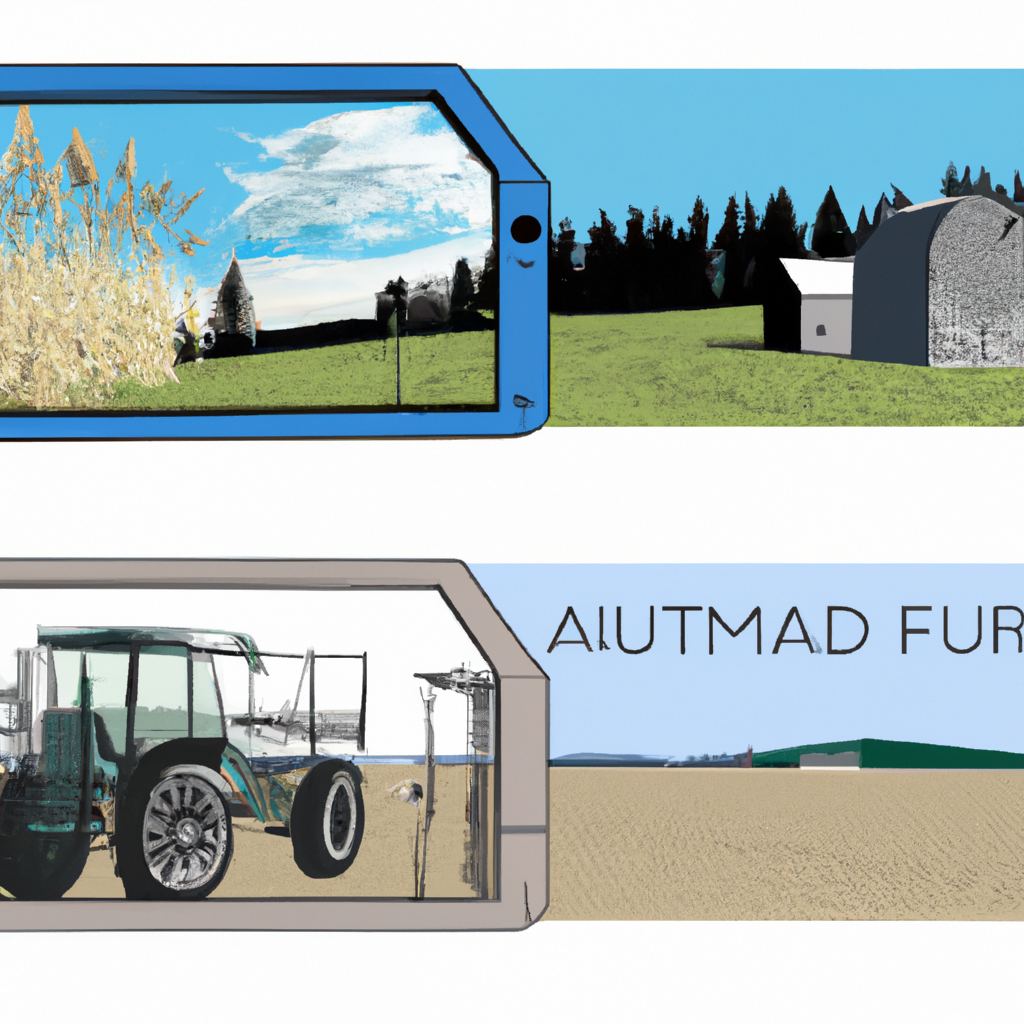
Should Rural Canada Focus on Agritech or Artisan Economies?
As the world continues to evolve and technology becomes increasingly integrated into our lives, rural communities in Canada are faced with a critical question: should they focus on agritech or the artisan economy?
On one hand, agritech, which combines agriculture and technology, presents an opportunity for rural communities to increase productivity, efficiency and profitability. On the other hand, the artisan economy, which emphasizes the value of locally made, handcrafted goods and services, could help to diversify rural economies and create new jobs.
In this post, we'll explore both sides of this debate, examining the potential benefits and drawbacks of each approach.
What is Agritech?
Agritech refers to the use of technology to improve the efficiency and output of agriculture. This can encompass a wide range of technologies, from GPS and drone technology for precision farming, to biotechnology for crop improvement, to data analytics for improved farm management.
Agritech has the potential to revolutionize rural farming in several key ways:
-
Increased Productivity: By using technology to optimize farming practices, farmers can produce more food with less effort. This can help to meet the growing demand for food both domestically and internationally.
-
Improved Sustainability: Many agritech solutions are designed with sustainability in mind. For instance, precision farming techniques can reduce the amount of water and fertilizer used, helping to conserve resources and protect the environment.
-
Enhanced Profitability: By increasing productivity and reducing costs, agritech can help to make farming more profitable. This could help to revitalize rural economies and attract new investment.
What is the Artisan Economy?
The artisan economy refers to the production and sale of high-quality, handcrafted goods and services. This can include everything from pottery and jewelry, to food and beverages, to personalized services such as hairstyling or massage therapy.
The artisan economy has its own set of potential benefits for rural communities:
-
Economic Diversification: By encouraging the development of a wide range of artisan businesses, rural communities can diversify their economies and reduce their dependence on any one industry.
-
Job Creation: Artisan businesses are often labor-intensive, creating jobs for local residents. They can also attract tourists and other visitors, supporting jobs in the hospitality and retail sectors.
-
Community Identity: Artisan businesses can help to create a unique identity for a rural community, making it a more attractive place to live and visit. This can help to attract new residents and investment, and foster a sense of pride and community.
The Case for Agritech
There are several compelling reasons why rural Canada might want to focus on agritech. The first is the potential for increased productivity. With the global population projected to reach 9.7 billion by 2050, there will be a growing need for food. Agritech could help rural Canada to meet this demand, while also creating jobs and boosting local economies.
In addition, agritech can offer solutions to some of the environmental challenges associated with traditional farming practices. Precision farming techniques can reduce the amount of water and fertilizer used, while biotechnology can help to develop crops that are more resistant to pests and diseases.
Finally, agritech could help to make farming more profitable. By reducing costs and increasing productivity, it can help to make farming a more viable career option for young people, helping to ensure the future of rural communities.
The Case for the Artisan Economy
Despite these arguments in favor of agritech, there are also strong reasons to support the artisan economy. The first is economic diversification. By encouraging the development of a wide range of artisan businesses, rural communities can reduce their dependence on any one industry, making them more resilient to economic shocks.
In addition, the artisan economy can create jobs. Unlike many aspects of agritech, which often involve automation and can therefore lead to job losses, artisan businesses are often labor-intensive. This can help to create jobs for local residents, while also attracting tourists and other visitors to the area.
Finally, the artisan economy can help to create a unique identity for a rural community. This can make it a more attractive place to live and visit, helping to attract new residents and investment.
Striking a Balance
While there are strong arguments in favor of both agritech and the artisan economy, it's likely that the best approach for rural Canada is to strike a balance between the two. By embracing both agritech and the artisan economy, rural communities can enjoy the benefits of both, while mitigating the potential drawbacks.
For instance, communities might focus on developing agritech solutions that are sustainable and create jobs, while also supporting the development of artisan businesses that can diversify the economy and create a unique community identity.
In addition, communities could look for ways to integrate agritech and the artisan economy. For example, farmers could use agritech to grow high-quality, locally sourced ingredients for artisan food and beverage businesses. This could create a virtuous cycle, where the success of one sector supports the success of the other.
Conclusion
In conclusion, the question of whether rural Canada should focus on agritech or the artisan economy is not a binary one. Instead, it's about finding the right balance between these two approaches, in a way that maximizes the benefits and minimizes the drawbacks for each community.
By embracing both agritech and the artisan economy, rural Canada can ensure a vibrant, resilient and sustainable future. As we move forward, it's crucial that we consider the needs and strengths of each community, and develop strategies that are tailored to these unique contexts.